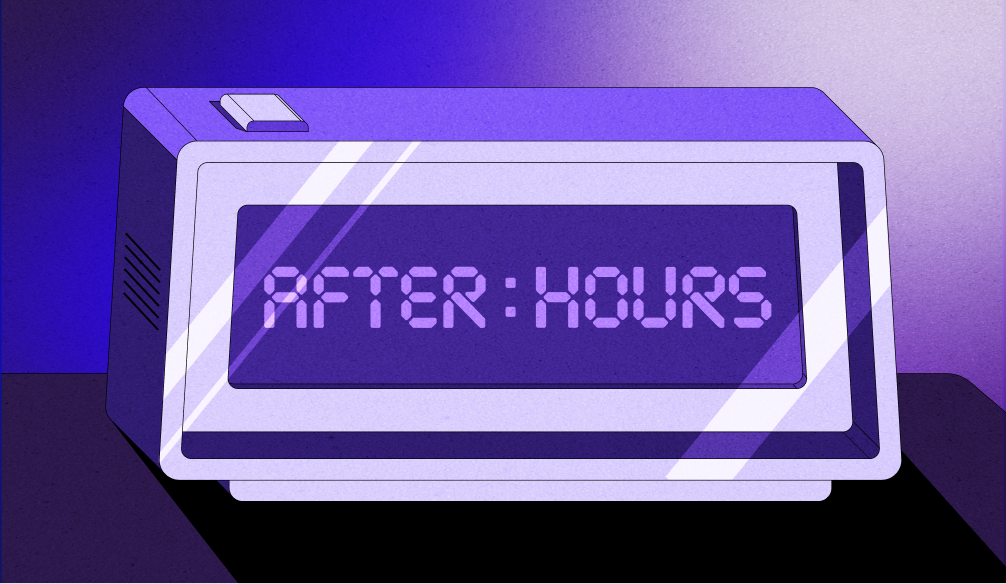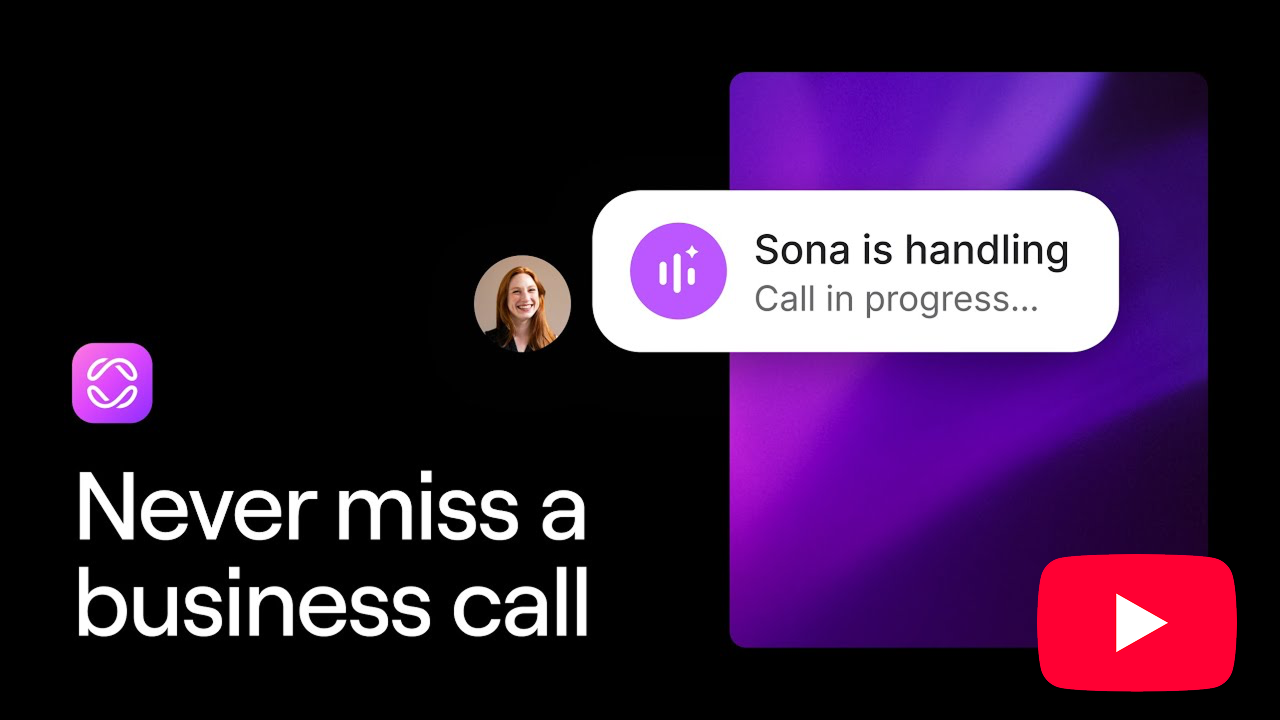
Issue No.5

Richard Huffaker
Before I write anything else, I just want to note that our co-founder and CEO Mahyar is conducting a Reddit AMA today and tomorrow on our new r/quo subreddit (which is replacing our old r/openphone one), and you can ask him any questions you have about Quo in this thread.
A few weeks ago, I stopped working at OpenPhone.
Instead, I now have the same role, same team, same responsibilities, same newsletter, and same scheduled Zoom meetings at a company called Quo.
What am I talking about? As you probably (but maybe not) have seen, OpenPhone is now Quo. We changed our name!
Some people love it. Some people like it. Some people do not like it. Some people don't care. And I know that some of you in those last two camps might reply to this email to let me know about that.
If it sounds weird to you, feel free to call us QuopenPhone until you get used to it. That's what I did at first and still occasionally continue to do.
A year ago, when OpenPhone first recruited me, I was initially skeptical about exploring the job further because the name sounded dated to me.
"OpenPhone?" I thought. "Is this some big, old company from the 90s? No thanks."
There's nothing wrong with being a company from the 90s, of course. I just thought I might be getting recruited by a corporate monolith that had been around forever, and I didn't want to work at a place like that. But then I visited the website and immediately saw that it was a modern company that just happened to have an old-sounding name.
Over time, I grew accustomed to the name OpenPhone and came to like it a lot. "It's like the name iPhone," I told myself. "But with the word 'Open' instead of an 'I'. What isn't cool about that?"
So by the time I heard we were changing our name, I'd essentially forgotten my initial misgivings about "OpenPhone" and didn't really understand why we'd want to make the change. I was wary of what our new name might turn out to be. When they announced it, I closed my eyes and braced myself.
Then I heard the name "Quo" and immediately thought, "That's not bad!"
And it grew on me well beyond just not being bad. I love the name now. It's excellent for plays on words (We're now all Quoworkers, we just filmed our first Quomercials, etc) and is very memorable.
It also represents how we're looking to the future of Quo and are not tied to the status quo of VoIP with OpenPhone.
Check out this video, which I filmed with our co-founders, Mahyar and Daryna, to learn more about the name change and some other big announcements we made.
Justine and Kat explain Quo
Digging into some of our big updates to Sona
Justine Delgadillo
Kat Buffington
Changing our name was not the only thing we did last month. We also made some significant updates to Sona, our AI assistant. Namely:
- Anyone can now start using Sona right away, for free. Every plan comes with 10 Sona-handled calls each month, with additional call credits available for purchase to accommodate any number of calls you may need.
- You can give Sona jobs that tell it exactly how to respond to any situation. From lead qualification to cancellations to appointment booking, Sona will detect caller intent and handle the call just the way you've instructed it to.
- Sona can transfer calls to you or to other team members. If a caller asks for a specific department, needs a real person, or Sona can't provide the answer, you can instruct Sona on when and where calls should be routed, and it'll send calls accordingly.
To learn more about everything you can do in Sona now, watch this short video we made with our colleague (or should we say Quo-worker) Grayson:
If you find all of this interesting and would like to take a deeper dive, watch the recording of our 30-minute live launch event from a few weeks ago. Daryna, Mahyar, and a couple of our PMs discuss our rebrand and dive into our new features in more detail, and then answer a ton of questions from the audience at the end:
Founders Corner
Why we rebranded to Quo
Daryna Kulya
Last October, our leadership team got together in Petaluma, an hour north of San Francisco.
There was a lot on the agenda, but one discussion unexpectedly became a topic of interest.
After we spent time reviewing our product roadmap, Mahyar brought up the question of whether OpenPhone was still the right name for our company.
This question has come up before among the two of us a handful of times, but changing the name never previously felt like a serious option. Up until then, every alternative name we considered felt worse than OpenPhone.
I was the most skeptical.
First, it's hard to transfer brand equity to a new name. Especially after working so hard to establish your initial brand over the years.
Second, there's no playbook for a rebrand later in the journey. I'm not talking about cases like Facebook → Meta or Google → Alphabet. Those are multi-product companies changing their corporate names.
For startups, early-stage rebrands are much more common. Zenpayroll → Gusto. Zeit → Vercel. Codeium → Windsurf. We're beyond the stage at which those companies made the call.
Third, as a founder, the name "OpenPhone" was part of my identity. Seeing it turn into a brand among small businesses and startups was the best reward for all the late nights. I felt inseparable from it.
So how did we get here? What led to this change? And… why Quo?
The perfect name
Let me give you a little context on the story of how the name "OpenPhone" came to be.
Mahyar came up with the idea in less than a minute. He needed a name for the GitHub repo that would turn into what we now know as OpenPhone.
_01K7Q9V35MXHTMAF0M73151QNS.png)
Mahyar shouted "OpenPhone" from across the room. I said, "Not bad." He shrugged, "It's just a placeholder."
We all know there's nothing more permanent than a temporary solution. 😅
While I later realized there are real downsides of a descriptive name, OpenPhone was perfect for us in the early days for a few reasons:
- Made us look bigger. Many people thought they'd heard of us when they hadn't. It sounded familiar, which built trust.
- Described the product clearly.
- Easy to spell and pronounce.
We could have stuck with it forever, but there were some good reasons to change.
Our requirements
Here's what we were looking for in a new name:
- Be unforgettable by being unexpected. Oftentimes names that feel odd, risky, or "wrong" at first create distinctiveness. Impossible Burger stands for me.
- Be noteworthy — spark debate, make people think. If a name slides past everyone with no reaction, it's dead on arrival.
- Less logic. More attitude. OpenPhone is a logical name and departing from a descriptive name meant going for a lot more attitude. Windsurf (formerly Codeium) is a great example of a name that has personality and emotion.
- Future-proof. Have the potential to take us further than "OpenPhone" could.
- Easy to say and write. Important for word of mouth and podcast ads.
We didn't have a hard requirement of having a path to owning our .com but we certainly considered that and got super lucky with quo.com.
Why Quo?
In Latin, Quo means "by which."
Quo is the platform by which you build better relationships and make customers feel valued.
It also signals our intent to redefine the status quo in business communications.
It's short, punchy, and yes — even a little punny. My quo-workers would agree.
While we had other potential name options that we could have chosen, Quo was the only one that didn't come with any baggage. It felt like the perfect vessel for us to fill with meaning from the product and services we offer.
I'm so energized to keep building the best product and service for you 💪
Watch my video where I discuss the thinking behind our rebrand in even more detail:
Note that this is an abridged version of a longer post from my founder-to-founder blog. You can read the entire, in-depth post there.
This email was sent to trongrau1368.taphone@blogger.com. Update your email preferences


_01K7PZHPXDXD7Q0VJQNDKA4FP9.png)
_01K7QAPHWHBHD69S6DK37ANKEK.png)

Đăng nhận xét